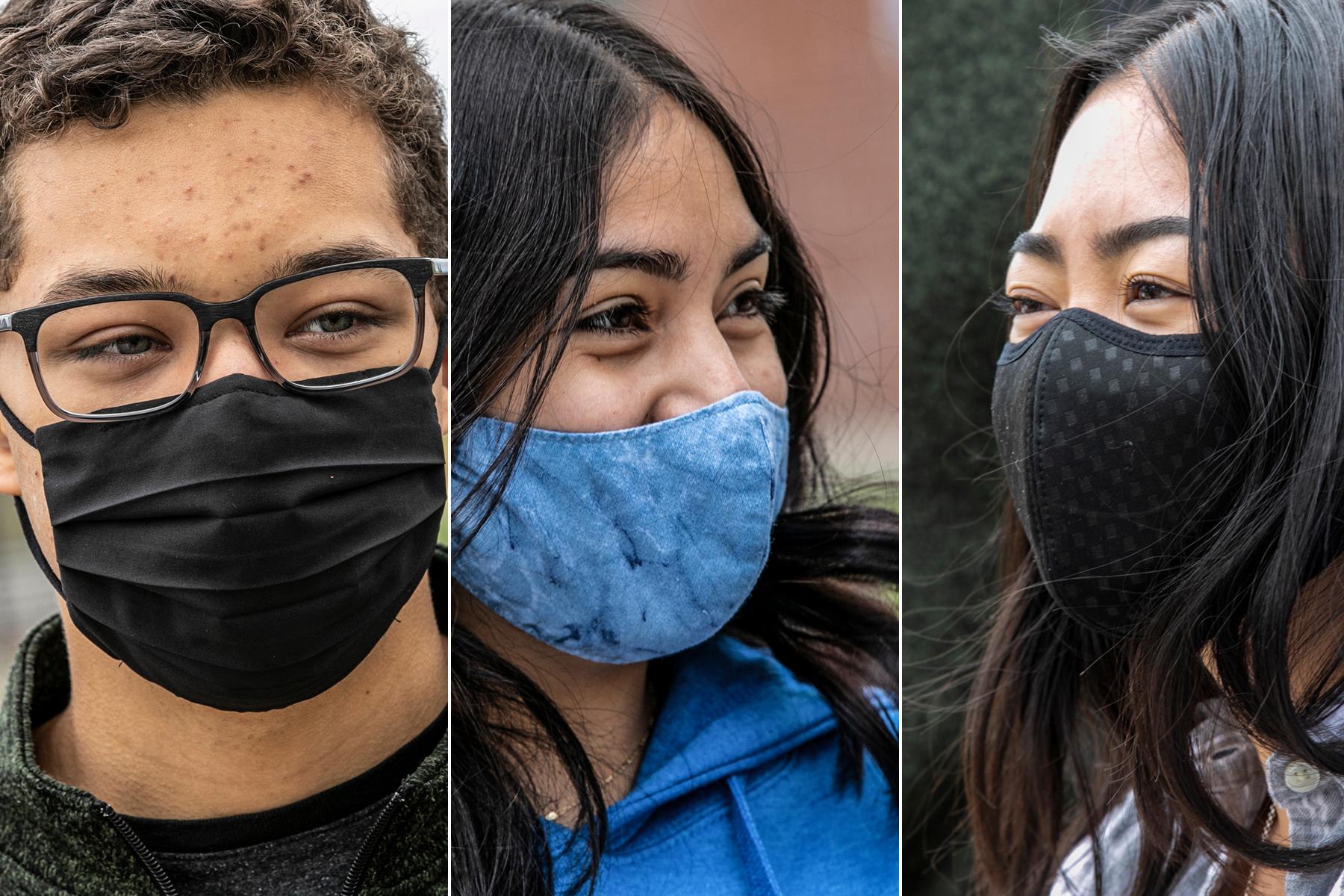
There were masked hugs all around on an overcast May day near the red and blue arch of Denver’s Manual High School.
With the city skyline as a backdrop, teacher Whitney Weathers greets a group of students she said she hasn’t seen, at least, in person since...
“When did we close down the school?”
It had been 14 months, since March of 2020. The meeting is also a celebration of sorts, said senior Serenity Soutthivong.
“Honestly, it's super surreal. When we first started off this project, we didn't think that we were going to be making this much of an impact. And because of Ms. Weathers we have,” she said.
Under Weathers tutelage, Soutthivong and a group of classmates undertook a year-long project to evaluate and improve the health access forms used by thousands of Denver Public Schools students each year.
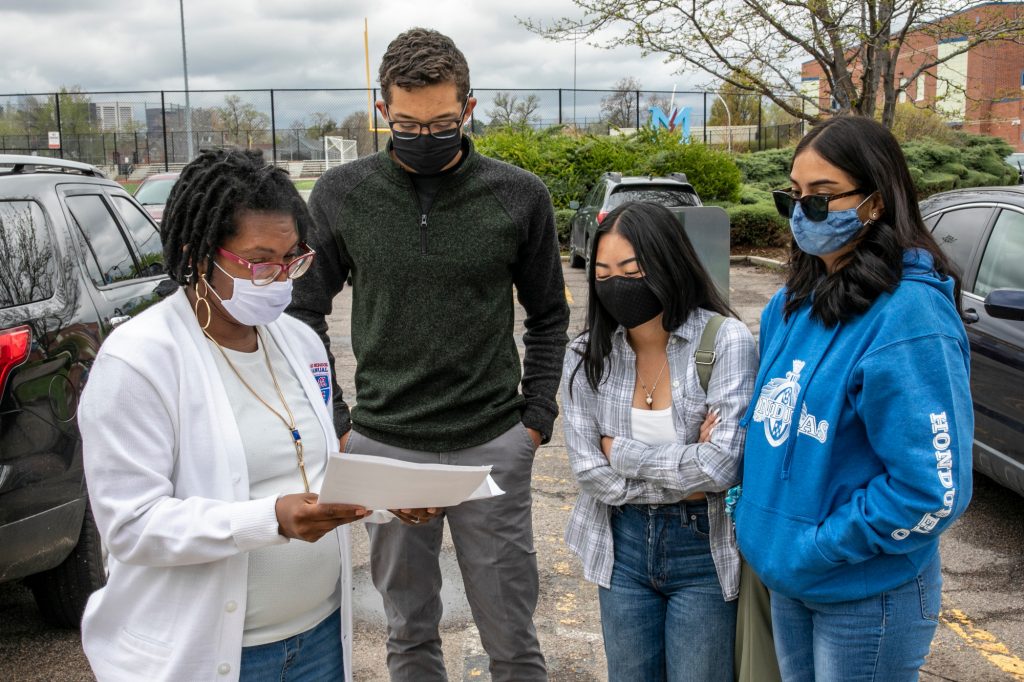
A lot of forms used at Manual were written at a college reading level and filled with medical or legal jargon.
But first, it began with a technical writing class, English 131 and a realization by Weathers as she was teaching.
“I started realizing that technical writing, although it's supposed to be colorblind, it is actually the one that impacts all people of color, right?” she said.
She thought that was pretty relevant at Manual, home to one of the state’s most diverse student populations. Weathers describes herself as an introvert. But she’s tenacious and she thought one specific piece of technical writing deserved attention.
“Everyone has to experience at some point signing a consent form,” Weathers said.
A consent form like the one DPS parents use so their students can gain access to medical care at health clinics based at 18 of the system's schools. But the form long in use at DPS had problems, the students said.
“All the writing was extremely small and it was so long,” Soutthivong said.
And those were just two of the problems.
“None of it matched what we were reading while we were learning the standards for what makes something readable and understandable,” said Morgan Pulling, a Manual sophomore.
The students found that the forms, in English and Spanish, were written for college-level readers. They were often vague or filled with challenging medical terms and legalese says another senior, Victoria Torres.
“The people using this clinic are low income people of color, marginalized groups. And they expect them to read at a college level when they probably didn't even graduate high school,” Torres said.
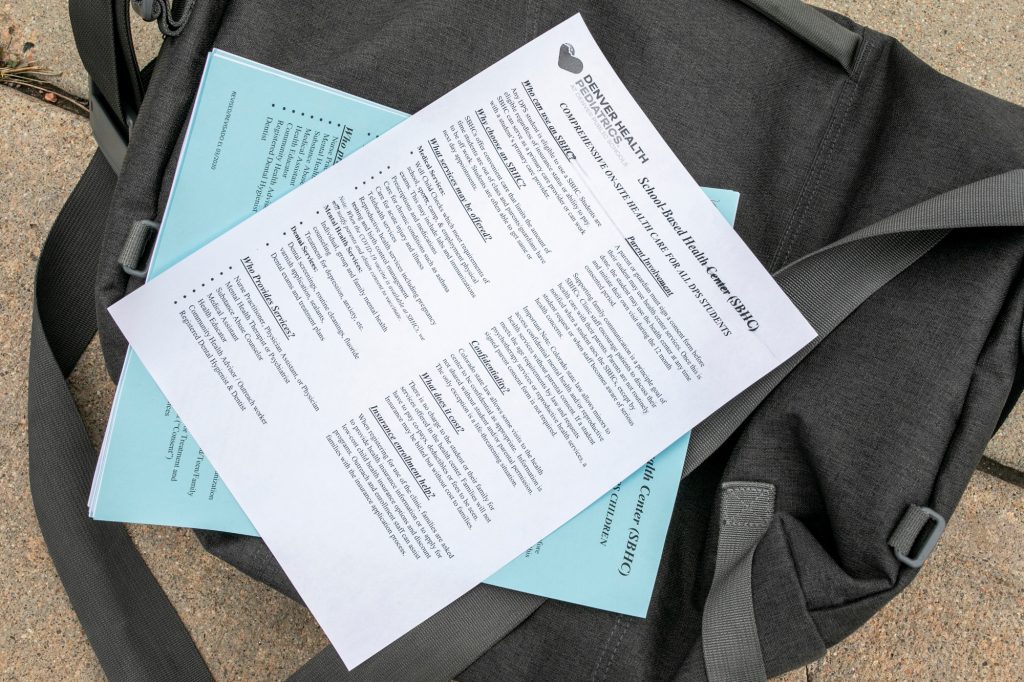
Students studied the forms and best design practices, then made some suggestions to Denver Health.
So these high school students, some of whom are part of a medical internship program, methodically dug into the forms. They examined visual appeal, vocabulary, sentence length, number of words and font size.
They searched for relevant academic studies. They consulted with consent form guides and prepared a powerpoint presentation which they gave over Zoom to the folks from Denver Health who operate the clinics in collaboration with DPS.
“Only the well-educated can properly read and comprehend most important medical consent documents, which is unjust,” Soutthivong told them.
The health professionals listened and offered feedback.
“Thank you guys so much, you guys did an amazing job,” said Lucy Roberts, Manual’s school nurse. “And this is something I work with on a daily basis so I really appreciate having your thoughts on this.”
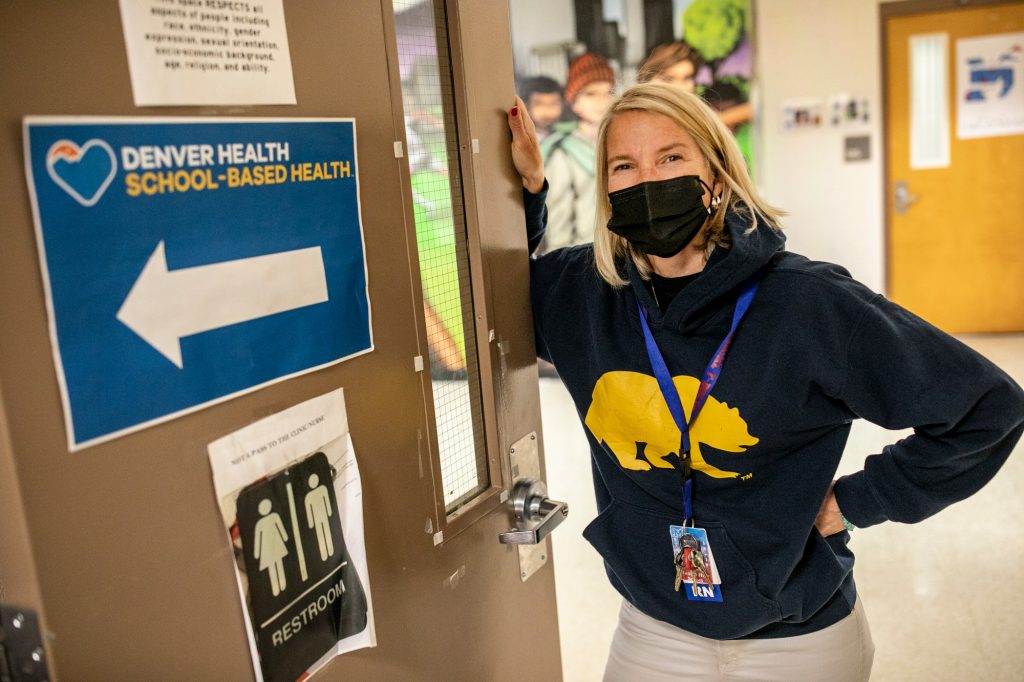
And in the end the medical leaders running the clinics concluded, "Hey these students are right!" said Denver Health youth program coordinator Tara Melinkovich.
“They were amazing and insightful and brought such real experience to a form that I don't think we give a lot of thought to,” Melinkovich said.
She conceded the consent forms are often confusing, too long and hard to read. And she says they were creating a barrier to healthcare, which is the opposite of what the clinics want.
“So it's a big deal and those students had a big impact,” she said.
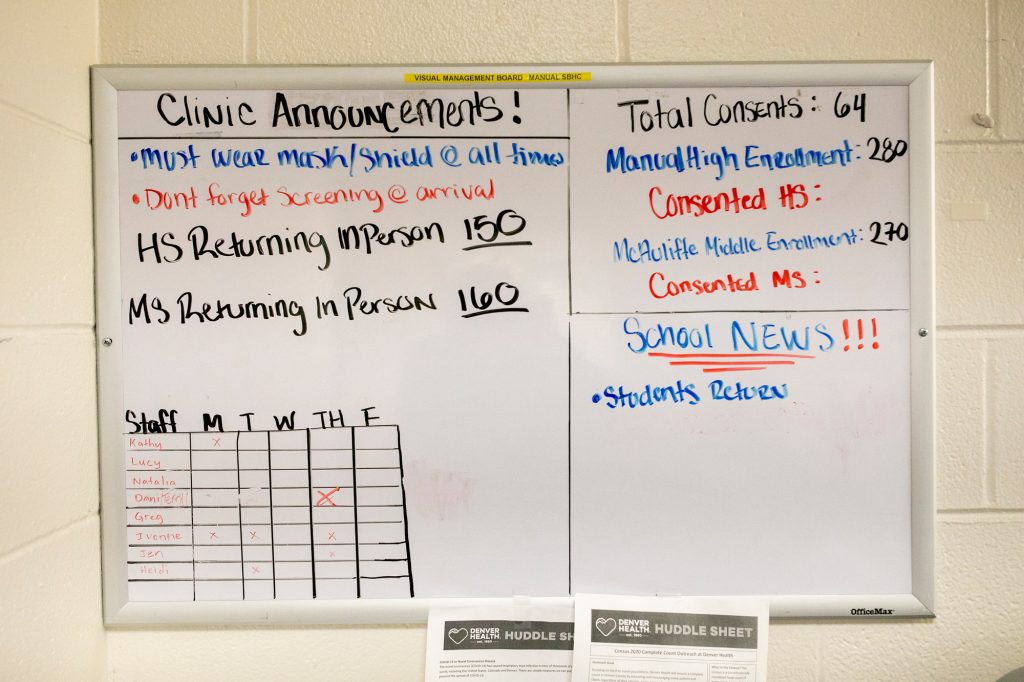
For the students and Ms. Weathers, the success with the new forms was 'a good thing out of a hard, hard year.'
Based on the efforts of the Manual students, Denver Health is changing the forms. The new ones are better formatted, with bigger font. Morgan Pulling says key medical information is now much more clear.
Take, for example, medications.
“In the first form, the only reference to medication is nonspecific,” Pulling said. “So there's no specification what medications students can actually receive.”
On the new forms “all of the medications with the brand and generic names are listed,” so for example the form lists the brand name Tylenol and its generic name, acetaminophen.
The new version highlights a pilot project to improve access to care for students that attend a school without a school based health clinic (SBHC). There is a checklist of some over-the-counter medication that can be administered by a school nurse and that students may receive if recommended by a medical provider following a telehealth appointment. And from that list, Pulling said, “you can either approve all medication, decline all medications or choose exactly what medications you want your child to receive.”
It's not an exhaustive list of the medications provided in SBHCs, but just as with vaccines, parents can choose whether they would like their child to receive certain over-the-counter medications administered by a school nurse.
Pulling argued in the original forms parents weren't giving fully informed consent because they didn't know what their child might be receiving.
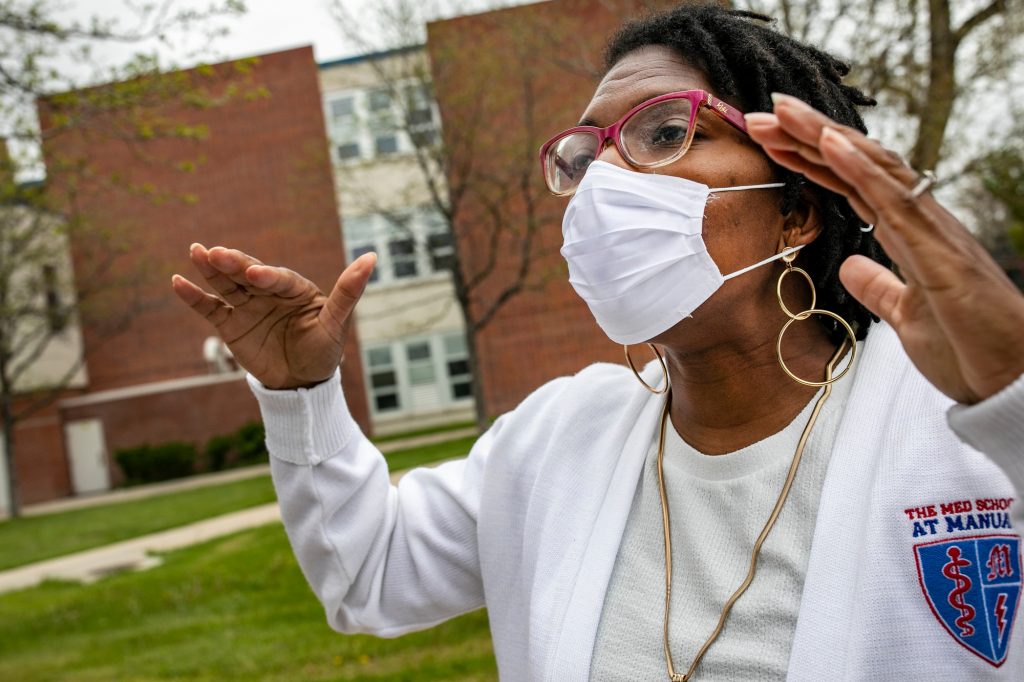
With the new forms “it's just a whole lot more clear and it gives parents a much, much more control over their child's safety.”
“I hope these changes elevate students' confidence in seeing how they are the ones in charge of their health care and their voice and their opinions matter,” Roberts said.
“I'm hopeful that overall the form is easier for families to fill out," said Cori Depue, Community Health Planner with Denver Health.
She said she’d heard from a few staff members who have already filled it out for their children since early registration started and “that it was much easier to fill out.”
Not a bad accomplishment, said senior Victoria Torres.
“So, yeah, it's a good thing out of a hard, hard year,” she said.
And one that made intrepid teacher Whitney Weathers proud.
“I think they've made lemonade out of lemons,” Weathers said. “Quite tasty too, if I just might say so myself.”
Editor's note: This story was updated June 7, 2021 to clarify that only some over-the-counter medications are addressed in the new forms.
- History Of Mistreatment Is Fueling Vaccine Hesitation For People Of Color In Colorado
- Trustworthiness Might Be More Important Than Trust When Messaging About COVID-19 Vaccines To Communities Of Color
- Tracking Coronavirus As It Spreads Through Latino Communities In Telluride Exposes Health Care Inequities









